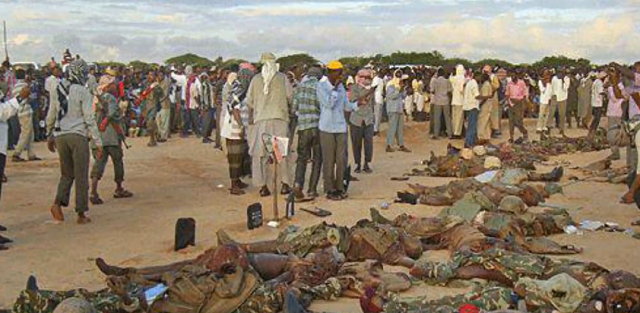There have been repeated assertions that military operations were in the final stages dating back even further to the previous administration.
Nigerian President Muhammadu Buhari first claimed the jihadists were “technically defeated” in December 2015.
But the security source warned against triumphalism, despite recent successes.
“They have indeed been pushed out of Sambisa. They have relocated their camps to Dubur and Yuwe on the rear fringes of Sambisa.”

– Chibok girls ‘at risk’ –
Boko Haram’s capacity has been weakened since it controlled swathes of territory in northeast Nigeria in 2014 but it still poses a threat.
The BBC last month said the militants killed at least 967 people in 150 attacks in 2017, up from 910 deaths in 127 attacks the previous year.
Civilians remain at risk, particularly in remote rural areas and even in more well-guarded camps for people displaced by the conflict.
This and a recent federal government request for an extra $1 billion for security funding have led to questions about the veracity of claims about the end of the conflict.
Similarly, the military has been asked why it needs 12 Super Tucano A-29 ground aircraft from the United States if the militants are scattered and on the run.
The air force said last month the aircraft were required “to consolidate on successes recorded so far.”
The security source said troops on the ground remained cautious about hunting down Boko Haram factional leader Abubakar Shekau, as he was using hostages as human shields.
They include some of the schoolgirls abducted from the Borno town of Chibok in April 2014 and female police officers seized in an ambush last year.
“They don’t want to harm them, which is why they are limiting aerial offensives,” he added.
 The Independent Uganda: You get the Truth we Pay the Price
The Independent Uganda: You get the Truth we Pay the Price





